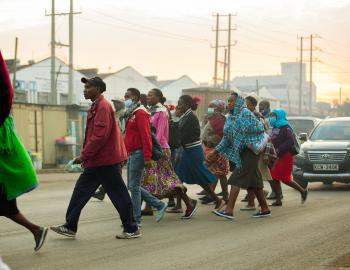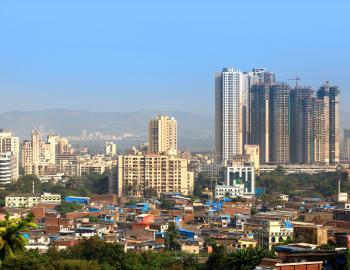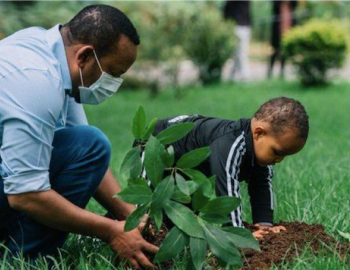CDKN Annual Report 2015: Climate compatible development - delivering results
CDKN Annual Report 2015: Climate compatible development - delivering results
Celebrating the results of its fifth year, the Climate and Development Knowledge Network (CDKN) this week releases its Annual Report 2015. During the past year, climate and weather-related disasters were seldom out of the news. From droughts and heat extremes in Southern Asia to erratic rainfall, including damaging floods across southern Africa, it was not hard to find reminders of the need for climate compatible development. CDKN’s Annual Report 2015 highlights the investments CDKN has made to safeguard lives and livelihoods in Asia, Africa, Latin America and the Caribbean and how we have supported innovations to plan and finance low-carbon development.
We have saved property and possibly lives in Vietnam, where an evaluation of climate-resilient housing built with CDKN support showed that the houses and their residents were unharmed when Typhoon Nari hit the country. In Kenya, farmers surveyed after harvest-time reported that their yields had increased by 15% after a CDKN-supported project brought seasonal and short-term forecasts to them by SMS message. Also in Kenya, our earlier work to support a country- wide consultation on the National Climate Change Action Plan helped to pave the way for the recently-approved Climate Change Bill in parliament.
“We need to work harder and faster” to tackle climate change, says Simon Maxwell, CDKN Executive Chair, in his foreword. ”But who is ‘we’? … ‘We’, of course, is all of us.”
“Science provides the crucial underpinning of climate action,” continues Mr Maxwell, “which is why CDKN has funded research around the world, and invested in disseminating the findings of the Intergovernmental Panel on Climate Change (IPCC). National decision-makers set the right policy environment, which is why CDKN puts national climate compatible development at the centre of its work. Negotiators frame global policy, financial flows and technology-sharing, which is why CDKN has a special programme to support climate diplomacy by least developed countries. And, within countries, parliaments, industry leaders, local governments, and communities all have a part to play: CDKN works with all, providing research, technical assistance, opportunities to learn, knowledge-sharing, and platforms for partnership.”
Case studies from Peru show just how such cross-cutting work can be achieved. Diverse experts and stakeholder groups from around the country have joined a dialogue – supported by CDKN – to map out options to tackle greenhouse gas emissions and poverty together. Now it’s likely that the 77 mitigation options will play some role in Peru’s Intended Nationally Determined Contribution (INDC) to the global climate talks in Paris in December 2015.
As well as reporting on the CDKN programme’s portfolio across Asia, Africa and Latin America and the Caribbean, the Annual Report contains reviews of its work across focal themes. These are: Climate compatible development policy and practice, climate-related disaster risk management, climate finance and support to least developed countries in the climate negotiations. An expanded section ‘CDKN in numbers’ details how CDKN has grown its partnerships worldwide during the last five years.
In 2015, CDKN "will be transitioning to becoming a multi-donor funded organisation," according to Chief Executive Sam Bickersteth. "We are very much looking forward to building on what we have begun. Drawing on the wealth of knowledge, perspectives and learning in our network, we plan to expand our scope with new donors and partners to address the urgent challenge of the transition to climate compatible development."



